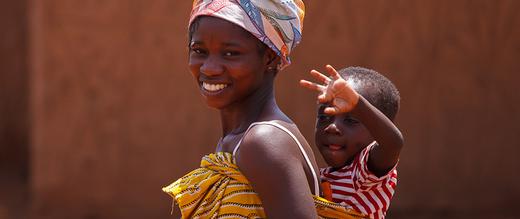The plight of women and girls across the globe, often shrouded in silence, echoes with a haunting resonance. They navigate a world marred by abuse and pain, an existence reflecting a tragic and unyielding truth: societal structures can perpetuate cycles of violence and neglect. In this intricate tapestry of adversity, the Bahá’í teachings emerge as a beacon of hope, articulating a vision rooted in justice, equity, and compassion.
To elucidate the profound implications of these teachings, it is imperative to delve into the multifaceted components that underpin the Bahá’í commitment to safeguarding the well-being of women and girls.
The Fundamental Principle of Equality
At the heart of Bahá’í doctrine lies the unwavering principle of equality between men and women. This foundational tenet posits that gender-based disparities are not merely social constructs but rather profound injustices that must be addressed. The teachings assert that the advancement of society is inextricably linked to the empowerment of women, akin to a bird striving to soar with only one wing. It is only through granting equal opportunities and rights that humanity can achieve its true potential.
This paradigm shift invites contemplation on the role of women in society—not as mere beneficiaries of rights but as pivotal agents of transformation. When empowered, women enrich the social fabric, contributing unique perspectives that catalyze positive change. The empowerment of women thus becomes not merely a moral imperative but a crucial societal requisite.
Addressing the Roots of Abuse
In grappling with the epidemic of abuse, Bahá’í teachings advocate for a dual approach: prevention and intervention. The construction of an environment hospitable to women and girls necessitates a thorough examination of underlying societal norms that condone violence and perpetuate silence. Much like weeds encroaching on a flourishing garden, toxic behaviors must be uprooted at their source.
Education stands as the cornerstone of this endeavor. By fostering a culture of awareness, communities can learn to recognize the signs of abuse, thereby dismantling the stigma that often prevents victims from seeking help. The teachings implore society to cultivate empathy and understanding, nurturing a collective consciousness that repudiates violence and champions the sanctity of human dignity.
The Role of Community
Unity is another pivotal theme within Bahá’í teachings that resonates deeply in the quest to protect women and girls. The collective responsibility to safeguard individuals from harm is viewed not merely as a moral duty but as an intrinsic aspect of community life. Families, neighborhoods, and societies are called to come together, creating a network of support that envelops vulnerable individuals.
The metaphor of interwoven threads aptly embodies this concept. Each thread in the tapestry of community signifies a unique contribution, yet it is the harmony of these threads that forms a strong fabric capable of resisting the strains of adversity. A cohesive community, bound by shared values of respect and cooperation, can effectively deter abuse and provide sanctuary for those who have suffered.
Empowerment through Education and Advocacy
The transformative power of education is emphasized consistently within Bahá’í thought. Education is not merely a tool for personal advancement; rather, it serves as a clarion call for change. When women and girls are afforded access to comprehensive education, they are equipped not just with knowledge, but with the agency to advocate for themselves and others. This empowerment can take many forms, from participating in community dialogues to engaging in leadership roles that amplify their voices.
Moreover, advocacy emerges as a vital mechanism for elevating awareness. Engaging with broader societal structures to reform laws and policies that inadequately protect women becomes an imperative. The Bahá’í teachings encourage fervent advocacy as a means to disrupt the status quo, illustrating the potential for systematic change. This, in turn, contributes to shaping a more just society that upholds the rights of all individuals.
Spiritual Dimensions: Nurturing Resilience
Beyond tangible measures of protection and empowerment, the spiritual realm holds a significant place in the Bahá’í approach to addressing abuse. Resilience, nurtured through spiritual practices and connections, can fortify individuals against the vicissitudes of life. The teachings invite reflection on the intrinsic worth of each person, fostering a sense of belonging and purpose that transcends experiences of suffering.
Simply put, cultivating a deep spiritual life can serve as an antidote to the isolation often experienced by victims of abuse. The collective support fostered within Bahá’í community life can resonate profoundly, helping individuals reclaim their narratives and embrace healing.
Conclusion: A Collective Responsibility
As we contemplate the urgent need to protect women and girls from abuse and pain, the Bahá’í teachings serve as an illuminating guide, advocating for a society where justice prevails and dignity reigns supreme. The protection of the vulnerable is not a solitary endeavor but a collective obligation, requiring concerted effort from all sectors of society. By acknowledging the integral role of women and girls and nurturing environments of respect and accountability, we can pave the way for a future where every individual can thrive, unburdened by the specter of abuse and pain. The teachings thus remind us that just as a garden flourishes with care and intention, so too can humanity blossom when it endeavors to protect its most vulnerable members.
